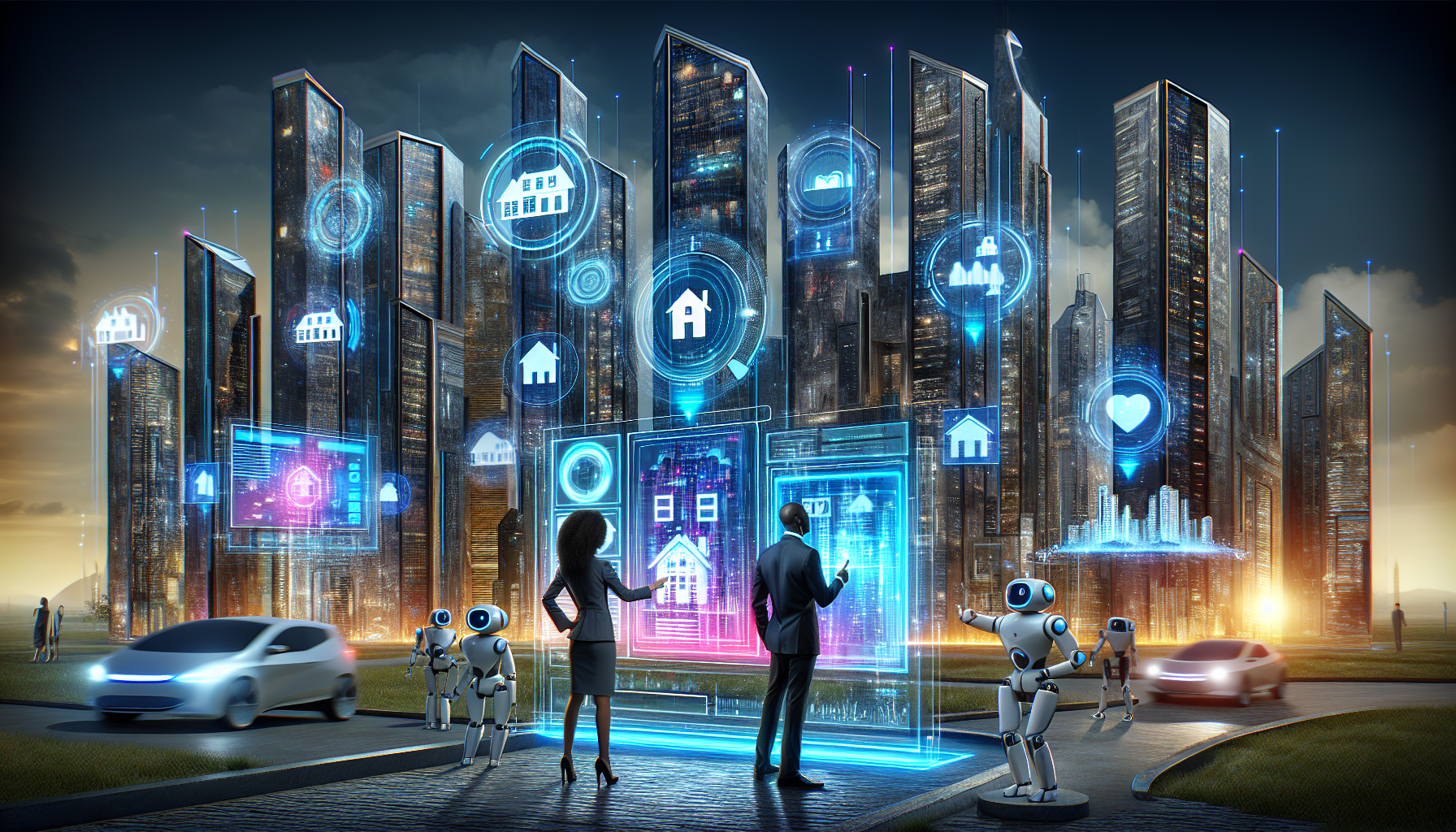Real Estate Automation: The Future of Property Management and Sales
Understanding Real Estate Automation
Real estate automation refers to the integration of technology to streamline processes involved in property management and sales. It encompasses tools and software that enhance efficiency, improve customer experience, and reduce operational costs. The real estate industry has traditionally relied on manual processes, leaving opportunities for automation largely untapped.
Key Components of Automation in Real Estate
-
Property Management Software
Property management software simplifies tasks like tenant screening, lease management, maintenance requests, and rent collection. Solutions such as Buildium, AppFolio, and TenantCloud offer comprehensive platforms addressing various aspects of property management. These systems enable landlords and property managers to track every tenant interaction digitally, reducing paperwork and minimizing errors.
-
Customer Relationship Management (CRM) Tools
CRMs specific to real estate, such as Salesforce and HubSpot, automate lead tracking, follow-ups, and client interactions. They provide a centralized database for client information, helping real estate agents nurture leads through personalized communication. Automating responses during crucial stages of the buying or selling process enhances client relationships and improves conversion rates.
-
Virtual Tours and 3D Imaging
Advanced technologies such as augmented reality (AR) and virtual reality (VR) allow potential buyers to experience properties remotely. Automated tools can create 3D models of homes, making it easier for buyers to visualize spaces before committing to a visit. This not only saves time but also mitigates the necessity of in-person visits in early stages.
-
Artificial Intelligence (AI) in Real Estate
AI enhances property management through predictive analytics, streamlining decision-making processes. Algorithms can analyze market trends, forecast rental income, and suggest optimal pricing strategies. AI chatbots improve customer service by offering instant responses to inquiries and facilitating appointment scheduling around the clock.
-
Marketing Automation
Real estate marketing automation tools, such as Mailchimp and Hootsuite, allow agents to manage campaigns seamlessly. With automated email campaigns, social media scheduling, and analytics tracking, agents can focus more on sales rather than logistics. Targeted ads can be launched based on buyer behaviors and preferences, increasing the effectiveness of marketing strategies.
Streamlining Property Operations
Automation simplifies the day-to-day operations within property management. Features like automated reminders for lease renewals and rent collection notifications lead to improved cash flow. Routine maintenance can be scheduled through portals allowing tenants to submit requests easily. Property managers can then prioritize tasks based on urgency and tenant needs.
Enhanced Accuracy in Transactions
Human error is a frequent issue in real estate transactions. Utilizing automated accounting and transaction software minimizes mistakes in financial reporting and documentation. Automation also ensures compliance with legal requirements, offering templates and structured processes that guide real estate professionals through the intricacies of local laws and regulations.
Optimizing Market Analysis
Real estate automation tools offer deep insights into market trends by analyzing vast datasets. Property evaluation software can assess location, amenities, and historical data to determine optimal pricing strategies. This real-time market intelligence allows agents to act swiftly and strategically, improving their competitive edge in sales.
Improving Client Communication
Automated messaging applications facilitate smooth communication between agents and clients, ensuring timely updates throughout the buying, selling, or leasing processes. SMS alerts and personalized emails keep clients informed about property viewings, offer status, and new listings that match their preferences. This consistent engagement enhances the client experience and broadens client retention.
Leveraging Blockchain Technology
Blockchain can revolutionize property transactions. By enabling secure, transparent transactions, blockchain reduces the risk of fraud and ensures thorough documentation of property ownership and history. Smart contracts can automate lease agreements and payment processes, making transactions faster and more secure.
Data Security and Management
As the reliance on digital platforms grows, so does the need for robust data security. Automated systems come equipped with security features to protect sensitive information. Regular updates and cloud storage solutions ensure that data is backed up adequately while still being accessible to authorized users.
Challenges and Considerations
While the transition toward real estate automation offers numerous benefits, challenges remain. Initial implementation costs can deter smaller firms from investing in advanced technologies. Furthermore, widespread reliance on automated systems raises concerns about the depersonalization of client interactions. It’s crucial for agents to balance technology use with personal touch to maintain meaningful relationships.
Future Trends in Real Estate Automation
-
Increased Adoption of IoT Devices
The Internet of Things (IoT) will become integral in property management. Smart devices will facilitate remote monitoring for security and energy efficiency, providing real-time data that enhances property management practices.
-
Integration of Remote Work Tools
The shift to remote work due to the COVID-19 pandemic had lasting effects on how real estate operates. Virtual collaboration and enhanced digital communication channels will become standard, ensuring that teams can operate efficiently regardless of location.
-
Sustainable Practices Through Automation
Automation can assist in the implementation of eco-friendly practices in property management. Automated systems can track energy consumption, optimizing usage and reducing costs. Integration with green technologies promotes sustainability, appealing to eco-conscious buyers.
-
Dynamic Pricing Models
Future automation tools may employ algorithms that adapt pricing on the fly based on market demand, competition, and property performance. This real-time pricing strategy will help agents maximize revenue opportunities from sales and rentals.
-
Augmented Reality for Enhanced Property Viewing
As AR technology becomes more affordable and accessible, it will be widely adopted for interactive property tours. Agents will send clients tailored virtual experiences before scheduling physical showings.
Real estate automation stands poised to redefine property management and sales. By enhancing efficiency and providing superior client experiences, technology is set to transform one of the oldest industries, melding traditional practices with cutting-edge solutions.


